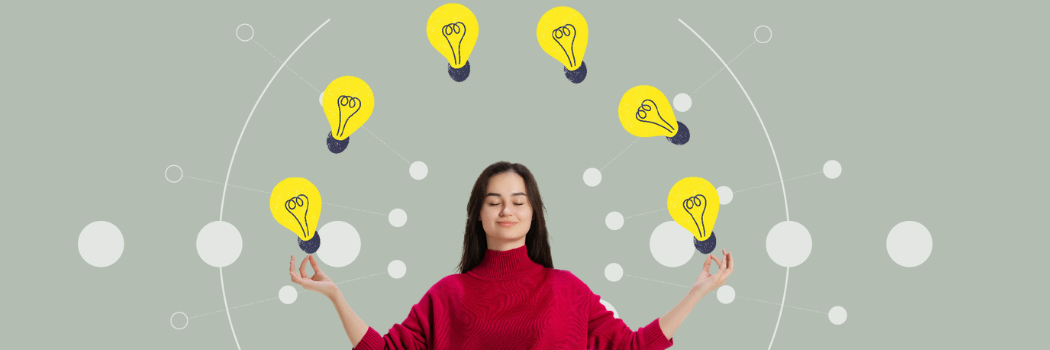Gaming the system: how scenario exploration can change how we view the future

By Dr John Hirst and Dr Cat Spellman, January 2024
.png)
John Hirst, Associate Professor in Management, and Assistant Professor Dr Cat Spellman share how an innovative learning tool can help build crucial skills in Futures Thinking.
On corporate responsibility and sustainability, leaders and globally renowned authorities like John Elkington have argued that universities need to start preparing students for the sweeping environmental and social change the planet currently faces. Hopes of achieving the internationally agreed United Nations Sustainable Development Goals (SDGs), aimed at transforming the socio-economic system to make it more equitable, inclusive, regenerative, and sustainable, are all but evaporating. We must now ask ourselves how to completely rethink the way we run our systems and societies.
There are noticeable failures in our collective ability to imagine and anticipate the massive and disruptive changes that are unfolding. Arguably, this is attributable to our education system’s lack of guidelines for, or systematic approaches to, thinking about the future. To prepare incoming generations of business leaders for climate change and grasp its complexities, it’s crucial that business schools consider the potential of integrated ‘Futures Thinking’ skills within their curricula. Future-orientated pedagogies can support the development of a critical awareness of current and future global challenges through reflection and collective dialogue.
Futures Thinking skills in Higher Education encourage students to contemplate multiple possibilities, explore potential scenarios, consider the impact of complex interconnected outcomes that different courses of action may have, and ultimately reflect on how they can contribute to creating more equitable and sustainable societies. Futures Thinking encourages teachers and students to become co-investigators as they critically evaluate their worldviews, creatively imagine alternatives, and discover ways to participate in transformative action. Acknowledging that anticipation is the form that the future takes in the present, Futures Thinking education includes the development of anticipatory competences. This involves the development of frames, narratives, and variables that shape imaginations, and necessitates emotional intelligence – since imagining the future can evoke hopes, fears, optimism, and uncertainty. For graduates to be able to contribute to a socially just future, it’s imperative for Higher Education to engage students in confronting both the injustices that the United Nations SDGs have yet to remedy but also the root causes of such justice failures. To date, there’s been limited progress in translating policy on future-orientated skills into action, with educators facing a multitude of barriers such as the lack of tools, methodologies, and guidance whilst also facing cultural resistance to unconventional, innovative teaching methods.
Responding to the need for Futures Thinking skills amongst business school graduates, this year the School is partnering with the Academy of Business in Society (ABIS) to integrate an innovative learning tool into a final-year optional module. The Scenario Exploration System (SES) is a gaming platform developed for classroom use, having already been used successfully amongst policy makers as well as other universities. The SES will be used in interactive workshops throughout the module, involving immersive participation in several rounds of serious game-playing facilitated by trained games masters. The platform introduces a range of scenarios applicable to a series of future time periods, and the players assume roles which they then act out accordingly. Participants are immersed in several plausible alternative futures while repeatedly thinking, conversing, acting, and reflecting outside of their usual frames of reference. The SES facilitates the understanding of interplays between networks, hierarchies, organisations, and markets – learning to model them in new ways, initiate and manage change, monitor, and evaluate the impacts and adjust intentions and mindsets as necessary. The aim of the SES isn’t to play a game and win. Rather, it’s to stimulate imagination in an environment of collaboration and respectful engagement to equip all participants with future-orientated skills to inspire and empower them to contribute to creating a more sustainable future for everyone.
The ways that we think about change and view the future have a critical impact on the way we think and act in the present. The complex and uncertain state of the world we find ourselves facing, confronted with multiple crises and threats, means that the future is even more difficult to imagine, and even less possible to predict. The role of Futures Thinking education isn’t to predict the future but to create a learning environment that fosters adaptation and prepares students for future challenges in safeguarding and sustaining the planet. The integration of the SES in an undergraduate Business and Management module is an innovative means of employing learning activities that concurs with the UNs priority of "ensuring a future-oriented focus in education curricula and pedagogy". A more sustainable future for our planet requires a radical shift, beginning with progressive changes in mindset amongst our future leaders to nurture key competencies related to critical thinking, ethical decision-making, creativity, communication, and problem solving. The ‘Facing the Future’ module offers a collaborative, stimulating, and innovative learning environment in which students are challenged to develop their anticipatory competence. It also demonstrates how Futures Thinking can be incorporated into mainstream teaching and learning, providing a prototype not just for business schools but for the wider Higher Education sector.

/prod01/channel_3/business/media/durham-university-business-school/impact/Home-Header-or-Footer-(10).png)